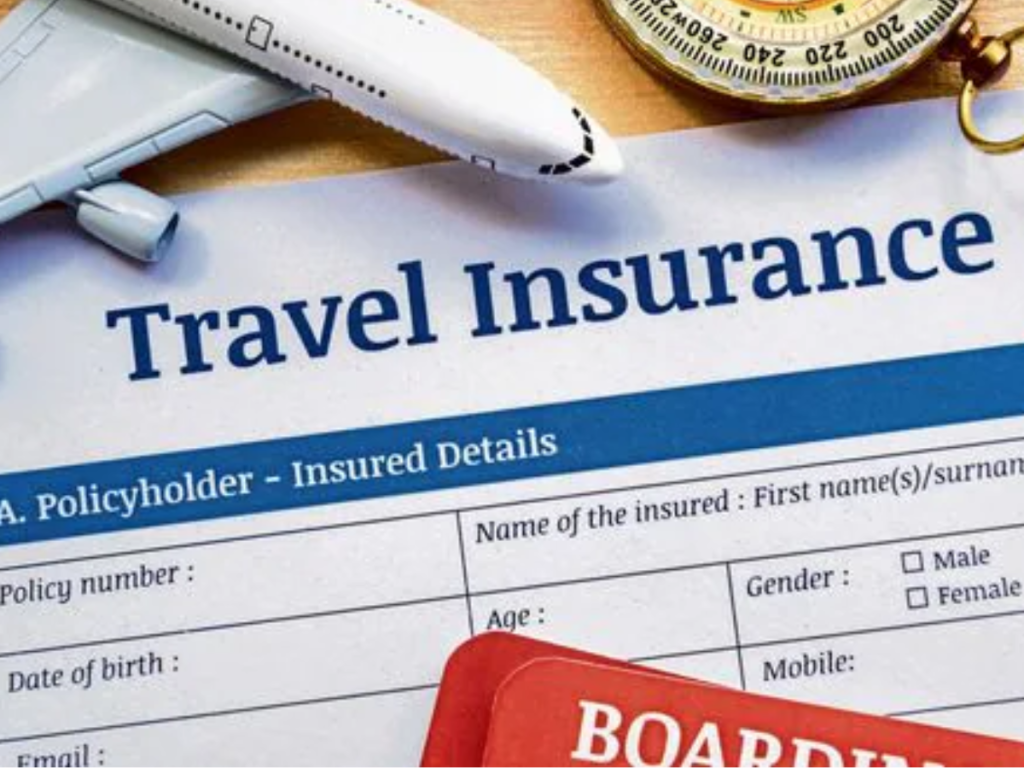Introduction
Traveling opens up a world of adventure, culture, and unforgettable experiences. But as every seasoned traveler knows, it also comes with its share of uncertainties. While first-time travelers may eagerly book their flights and accommodations, experienced globetrotters often pause to consider one critical aspect: travel insurance. To many beginners, travel insurance seems optional—an extra cost they might skip. But for those who’ve been around the globe a few times, it’s a non-negotiable part of every trip. Why? Because they’ve learned the hard way—or seen others suffer the consequences—of what happens when things go wrong without a safety net.
This article dives deep into what seasoned travelers understand about travel insurance that many first-timers overlook. By the end, you’ll understand why it’s not just a luxury or an afterthought but an essential part of smart and responsible travel.
1. It’s Not Just About Trip Cancellation
Many first-time travelers assume travel insurance only covers trip cancellations due to illness or emergencies. While cancellation coverage is valuable, it’s just the tip of the iceberg. Experienced travelers understand that a comprehensive policy offers far more—emergency medical care, evacuation, lost baggage, trip delays, and even coverage for political unrest or natural disasters. These elements are crucial when you’re far from home and need urgent assistance or unexpected costs pile up.
Medical expenses abroad, especially in countries like the U.S., Japan, or Switzerland, can be astronomically high. A simple injury or illness could cost thousands of dollars. Seasoned travelers know that a good policy provides medical coverage and even covers emergency evacuation, which could save your life—and your wallet.
2. The Importance of Understanding the Fine Print
Veteran travelers don’t just buy the cheapest policy available—they read the fine print. They know that all travel insurance policies are not created equal. A policy might look comprehensive on the surface but come with exclusions that make it almost useless in real-world scenarios.
For example, many policies don’t cover high-risk activities like scuba diving, skiing, or mountain trekking unless you opt for an adventure sports add-on. Some don’t cover pre-existing medical conditions or require that you purchase insurance within a certain window after booking to be eligible for specific benefits. First-timers may miss these nuances and find themselves unprotected when it matters most. Experienced travelers make it a habit to understand the terms, limits, and exclusions before purchasing.
3. Claims Aren’t Always Smooth—Preparation Matters
Another often-overlooked detail by first-timers is the importance of documentation. Just buying travel insurance isn’t enough—you need to be prepared to prove your claims. Seasoned travelers keep digital and paper copies of receipts, medical reports, police filings, and itineraries. They also know to notify the insurer immediately in the event of an incident. Why? Because failing to follow the claims process correctly can lead to denied claims.
Experienced travelers also understand the value of choosing reputable insurance companies with a history of reliable claim settlements. They often check reviews or consult travel communities before buying. A cheap policy that never pays out is more expensive than a slightly pricier one that does.
4. Travel Insurance Covers Things You Can’t Control
First-timers often think: “I’m healthy, careful, and organized—nothing will go wrong.” But travel is full of variables beyond your control. Flight cancellations, natural disasters, strikes, pandemics, political unrest, theft, and even volcanic ash clouds can derail your plans. Seasoned travelers have lived through these surprises and know that insurance is about protecting against the unexpected.
For example, when Iceland’s Eyjafjallajökull volcano erupted in 2010, it disrupted flights across Europe for weeks. Travelers with the right insurance were reimbursed for accommodations and meals; those without it bore the costs themselves. First-timers may consider these events rare, but for frequent travelers, the unlikely becomes inevitable over time.
5. Your Health Insurance May Not Cover You Abroad
Many first-time travelers assume their domestic health insurance will cover them internationally. However, in most cases, it doesn’t. Even if you’re traveling to a country with a reciprocal healthcare agreement, you may only receive emergency care—not full coverage. This is why seasoned travelers never rely solely on their national health plan. They purchase travel insurance that specifically includes international medical coverage and emergency evacuation.
In countries with private healthcare systems, even a hospital visit for a minor issue can cost thousands. Add to that the costs of medical repatriation—flying you back to your home country under medical supervision—and you’re looking at tens of thousands of dollars. Seasoned travelers always ensure their policy includes these scenarios.
6. Travel Insurance Is Especially Crucial for Long-Term or Remote Travel
If you’re planning an extended trip—backpacking through Southeast Asia, remote work in South America, or a digital nomad lifestyle—travel insurance becomes even more essential. The longer and more remote the trip, the greater the chances of encountering health issues, theft, travel disruptions, or visa problems.
Seasoned long-term travelers opt for policies designed for extended stays and multiple countries. They look for flexible options with worldwide coverage, renewable plans, and 24/7 emergency assistance. First-timers often don’t realize that a standard short-term policy might expire midway through their trip or may not cover countries they plan to visit.
7. Trip Delay and Interruption Coverage Is a Lifesaver
You may have booked your flights, accommodations, and tours months in advance. But if your connecting flight is delayed and you miss a prepaid safari or cruise, the financial loss can be significant. Trip delay and interruption coverage compensates you for these missed opportunities. It can cover meals, accommodations, and new transportation arrangements.
Seasoned travelers know that even a small delay can cause a domino effect. They choose policies that offer high limits for interruption coverage, so they aren’t out-of-pocket for circumstances beyond their control. First-timers may not think beyond their initial booking and assume everything will go as planned.
8. Lost or Delayed Luggage Happens More Than You Think
Most seasoned travelers have experienced at least one incident of delayed or lost luggage. It may seem like a minor inconvenience—until it’s your bag that’s gone. Travel insurance can reimburse you for essentials like clothing, toiletries, and even gear rental if your luggage is delayed for an extended period. If it’s permanently lost, you can claim the value of your belongings up to a set limit.
First-time travelers might not think about the hassle of spending their first day abroad shopping for underwear and a toothbrush. Veterans make sure their insurance includes baggage coverage and often carry essential items in their carry-on just in case.
9. Insurance Gives You Access to Emergency Assistance and Coordination
One of the underrated benefits of travel insurance is access to 24/7 emergency assistance services. Whether it’s finding a nearby hospital, arranging an emergency evacuation, or translating medical terms in a foreign language, your insurance company can act as your lifeline.
Experienced travelers know that in a crisis—medical, legal, or logistical—having someone to call makes all the difference. First-timers might not realize that these concierge-style services are built into most comprehensive travel insurance plans. When you’re stranded in a foreign country, this support can be the difference between panic and resolution.
10. Travel Insurance Is About Peace of Mind
Ultimately, seasoned travelers buy travel insurance for peace of mind. They understand that while you can’t prevent every mishap, you can control how well you’re prepared for it. Having travel insurance means you’re free to enjoy your trip knowing that you have backup if things go wrong.
First-time travelers might see travel insurance as an expense. But seasoned travelers see it as an investment—in their safety, finances, and sanity. It lets them take risks, explore new places, and travel further, knowing they’re protected.
11. COVID-19 Changed the Insurance Landscape
Before 2020, few travelers thought about pandemics. Now, it’s a major consideration. Seasoned travelers now look for policies that include coverage for trip cancellation due to illness, quarantine requirements, or border closures. Many insurance providers offer COVID-specific coverage, including telehealth services, isolation accommodations, and cancellation due to a positive test.
First-time travelers may not be aware that not all policies automatically cover COVID-related disruptions. Experienced travelers actively seek out insurers who offer these protections—and ensure they meet entry requirements for the countries they’re visiting.
12. Credit Card Coverage Is Often Limited
Some credit cards offer travel insurance as a perk, but seasoned travelers know to treat this as a bonus—not a replacement. Credit card travel coverage often comes with strict limitations: only covering trips purchased with the card, offering low reimbursement limits, or excluding key benefits like medical coverage or adventure sports.
Veteran travelers may use these benefits as supplementary coverage, but they still purchase standalone travel insurance for complete protection. First-timers who rely solely on credit card insurance often don’t realize the gaps until it’s too late.
13. Customizing Your Policy Matters
Experienced travelers tailor their insurance based on their trip. Going on a cruise? Make sure your policy covers missed ports and emergency evacuation from sea. Planning to hike Kilimanjaro? Add high-altitude trekking coverage. Bringing expensive gear like a drone or camera equipment? Get a policy that covers high-value items.
First-timers might just click “basic coverage” without thinking through what they need. Seasoned travelers treat travel insurance like packing: customized to the destination, activities, and personal risk tolerance.
14. Some Countries Require Proof of Insurance
More countries are now requiring proof of travel insurance before granting entry. Thailand, Cuba, Schengen countries, and many others require travelers to show documentation of coverage. Seasoned travelers know to check these requirements well in advance to avoid issues at immigration.
First-time travelers may not know this and risk being denied entry or needing to purchase overpriced insurance at the airport.
15. The Cost of Insurance Is a Fraction of What It Covers
Perhaps the most important realization for seasoned travelers is that travel insurance is incredibly affordable relative to what it can save you. A few extra dollars can protect you from losing thousands. They’ve either experienced—or heard countless stories of—people spending their entire vacation budget recovering from a crisis that could have been covered for the price of a dinner out.
Conclusion
The wisdom of seasoned travelers is born from experience. They’ve learned that no matter how carefully you plan, travel is inherently unpredictable. Travel insurance doesn’t eliminate risk—it simply gives you a safety net when things go wrong. For first-timers, understanding and adopting this mindset can make the difference between a dream vacation and a travel nightmare. As you plan your next journey, don’t just pack your bags—pack peace of mind by investing in the right travel insurance. Your future self will thank you.

